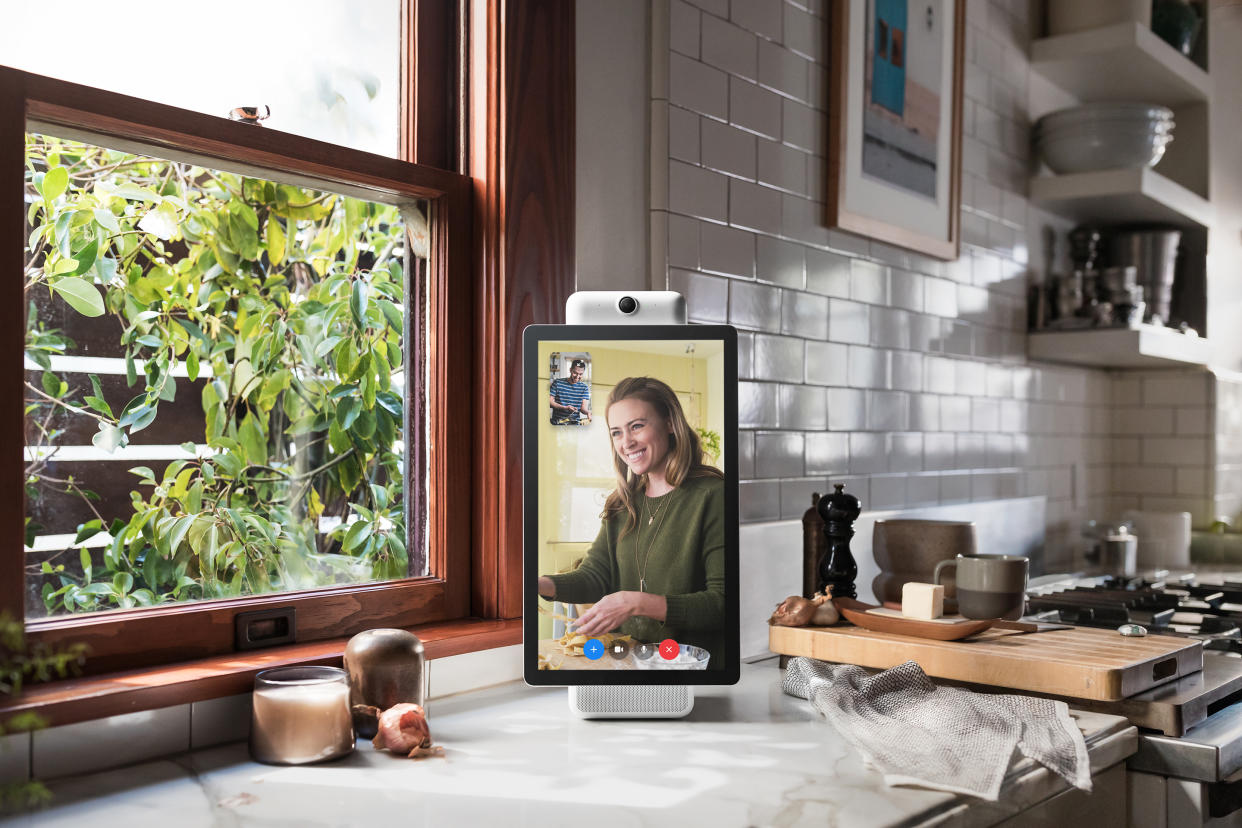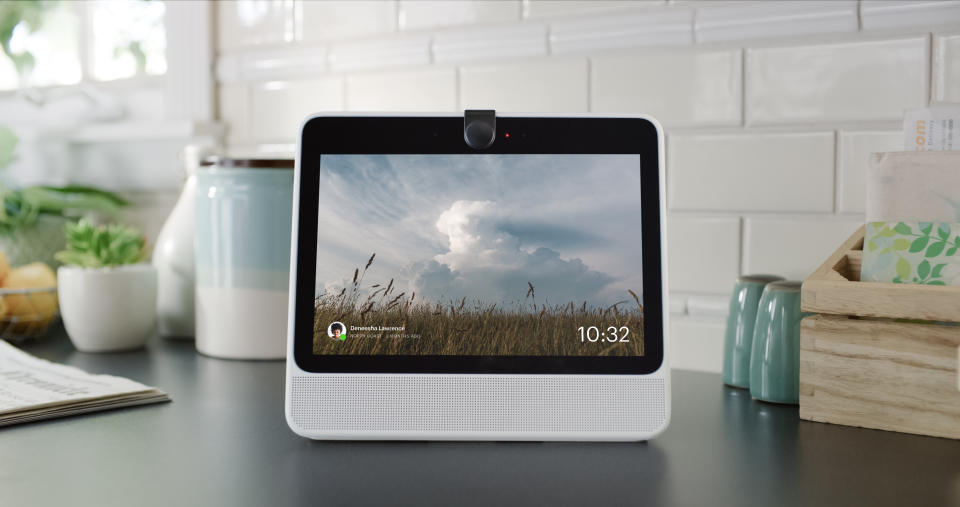Facebook launches Portal video-chat device from once-secret Building 8

WASHINGTON — Facebook’s “moonshot” lab launches its first consumer product device today, marking the end of speculation about its work, while also signaling a more down-to-earth mission for a division that once promised to quickly deliver fanciful technology, like devices that could connect directly to the human brain.
The new product, called Portal, is a device that will compete with Amazon’s Echo, while also promising a more interactive experience that allows users to connect with friends using voice and video. With the launch of Portal, Facebook’s once secretive Building 8 will be renamed simply the Portal team, marking a yearlong integration of what was once billed as a breakthrough products group into Facebook’s larger augmented-reality and virtuality-reality research group, known as AR/VR.
While Facebook says the renaming of Building 8 is consistent with its approach to other groups, like the Oculus team, which builds virtual reality devices, the change appears to cap the end of a larger mission for a group that was announced with much fanfare more than two years ago with the hiring of a former senior Pentagon official.

When Regina Dugan, the former head of the Defense Advanced Research Projects Agency (DARPA), joined the company in April 2016, Facebook CEO Mark Zuckerberg said she would “apply DARPA-style breakthrough development at the intersection of science and products to our mission. This method is characterized by aggressive, fixed timelines, extensive use of partnerships with universities, small and large businesses, and clear objectives for shipping products at scale.”
Dugan served as the head of DARPA from 2009 to 2012, and jumpstarted new research applying social media tools to warfare. Immediately prior to joining Facebook, Dugan worked for Google as head of its Advanced Technology and Projects, which was modeled in part after DARPA.
DARPA, founded in 1958, has been behind some of the biggest technological breakthroughs in the civil and military world, including drones, driverless cars, and most famously, the internet. Known for pursuing high-risk, high-payoff research, DARPA is supposed to cut through the red tape that hinders many Pentagon programs, and quickly field advanced technology.
When it was first started, Building 8 appeared to harbor similar ambitions, promising a series of new devices, from brain-reading technology to possibly even new-fangled drones, which would be spun off into Facebook’s other product groups. Zuckerberg said that Building 8 would kick off “breakthroughs” in areas such as virtual reality and artificial intelligence.

Inside the company, however, Building 8 was sometimes the butt of jokes about being the place where people — and their careers — simply disappeared. There was also a seeming disconnect between the promise of breakthroughs at the edge of science and the reality of what looked like the development of mainstream products.
It appears that what was once Building 8, now the Portal team, will focus primarily on the Portal family of devices.
While Facebook says this is not a significant change, it seems that dreams of a breakthrough division have deflated somewhat over the past two years. In November 2017, Dugan announced her departure from Facebook after just 18 months at the company. Dugan, who has not made any public statements about her work since leaving, did not immediately respond to a request for comment.
It remains unclear what will happen in the long term to Facebook’s brain-computer interface research, which at one point was an integral part of Building 8’s work. The team remains based at Menlo Park, Calif., and is continuing its work, but as of last year it reports to Michael Abrash, the head of the AR/VR research, who is in Redmond, Wash.
At one point, Facebook had promised brain-reading technology that would allow the user to type 100 words per minute. That’s a tall order for research that has spanned decades, and despite progress has yet to produce more than rudimentary devices.
Yet brain-computer interface devices continue to attract increasing interest from Silicon Valley. Elon Musk has also been involved in the area through his company Neuralink, which has maintained a close hold on its research.
In the meantime, Facebook’s focus appears to be on the near term prospects for Portal, whose launch was reportedly delayed from spring.
A regular Portal will sell for $199, and a larger version is priced at $349.
Facebook, which been the center of a number of controversies revolving around privacy issues, such as the use of data by Cambridge Analytica during the 2016 presidential election, is emphasizing Portal’s privacy features. The company says it won’t listen into your conversations or store the contents of video chats on its servers.
Portal will send voice commands to Facebook’s servers, but only when activated by the user. Those commands will be stored in the user’s activity log, though users can delete them in their voice history.
Portal will also come with an old-fashioned privacy device: a camera cover.
_____
Read more from Yahoo News:



